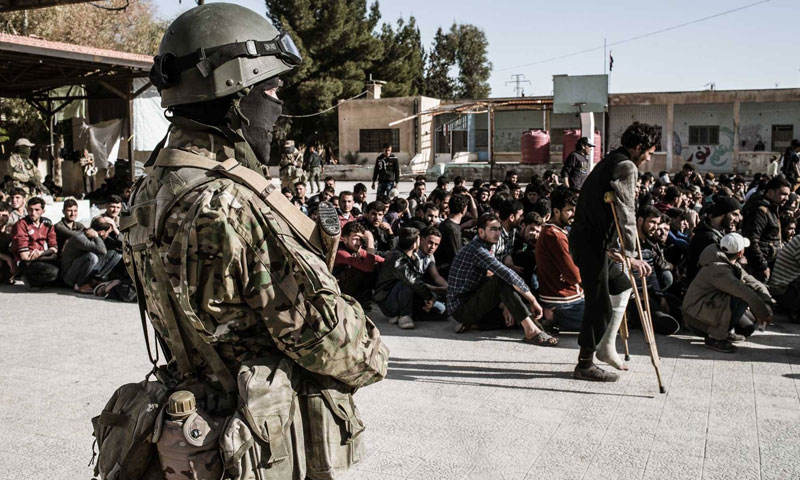The Assad’s forces continue with the security campaign against Eastern Ghouta, which started early last February in search of the opposition factions’ arms, buried in agricultural lands and in residential areas.
In eastern Ghouta, citizens are complaining about several issues that are yet a source of concern to them, on top of which is the increasingly tightening security and the deteriorating services, backed by the state of alarm which the area is enduring due to the raids conducted by the Russian military police and the Assad’s forces in search of weapons.
Changing Checkpoints: The Downpour Starts with a Drop
Though changing the checkpoints early in last February was not the first time such a thing happens, but this time was ominous after the state of alarm and thorough inspections of people getting in and out of Ghouta, while elements of the Republican Guard started to enter the area’s towns fully equipped with tanks and machine guns, in addition to increasing the number of elements at the checkpoints and enhancing their fortifications, as monitored by Enab Baladi through citizens and activists based in Ghouta.
The narrative about changing the checkpoints, which recruits at the checkpoints told the people, was the following: “It is nothing to worry over. It is to follow up the issue of evaders of the reserve military service,” according to Samer, from the city of Kafr Batna, middle eastern Ghouta, who explained that the Assad’s forces are sealing the exits and the neighborhoods with dust mounds, as to restrict the movement of the people coming in and getting out of the area to the main streets, where the inspection checkpoints are erected. This situation increased the people’s complaints and the dissatisfaction because the distance they must pass became longer.
The state of dissatisfaction made Samer, 35 years old, regret leaving his house in Damascus to return to his city.
Arrest Raids and Diggings Operations in Search of Weapons
The Assad’s forces have conducted several arrest raids in different areas in eastern Ghouta, starting from the city of al-Malihah, at the southern entrance to the middle sector and the southwestern flank of Ghouta, in addition to two separate raids in the cities of Saqba and Kafr Batna, which targeted 25 to 40 years old men.
The Russian Military Police and the Assad’s forces started new raids in various places in search of buried weapons, utilizing Russian equipment and drilling teams, which did digging operations in the agricultural lands of Jisreen, near the town of al-Mohammedia, at the entrance to the central enclave at the southern side of the area, according to Ahmad, an eyewitness from the city of al-Malihah who works as a farmer in the al-Mohammedia.
Ahmad told Enab Baladi that the digging and search operations were not random, rather eclectic, for the Assad’s forces are digging various areas, according to what seems likes reports about the presence of weapons in the areas where the digging is being done.
The Assad’s forces and the municipalities councils always attribute keeping the Ein Tarma’s main roadway, which reaches Damascus, closed to the undiscovered weapons left in the area.
Enab Baladi spoke to several local sources from eastern Ghouta, which all stressed that the Syrian regime’s security branches when investigating the young men, during their stay in the temporary housing centers, after they left eastern Ghouta in May and April 2018, were specifically asking about the places where the weapons are buried by the opposition factions that exited the area under the reconciliation deal which they signed with the Syrian regime and the Russian side.
The official media outlets have already presented several tunnels and warehouses, which they referred to as the places where weapons belonging to the opposition were found. Many of the opposition factions’ weapons, which Russia confiscated, were sent to Russia and showcased at weapons’ exhibitions.

